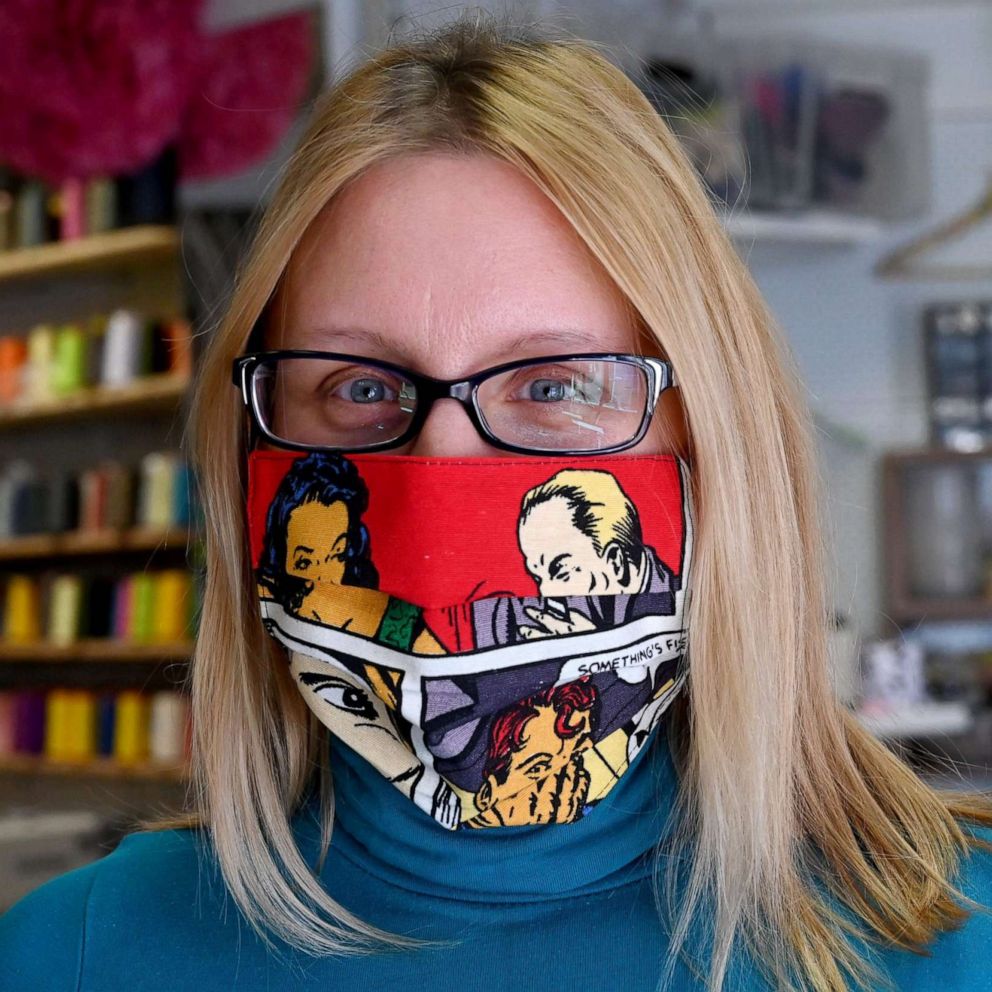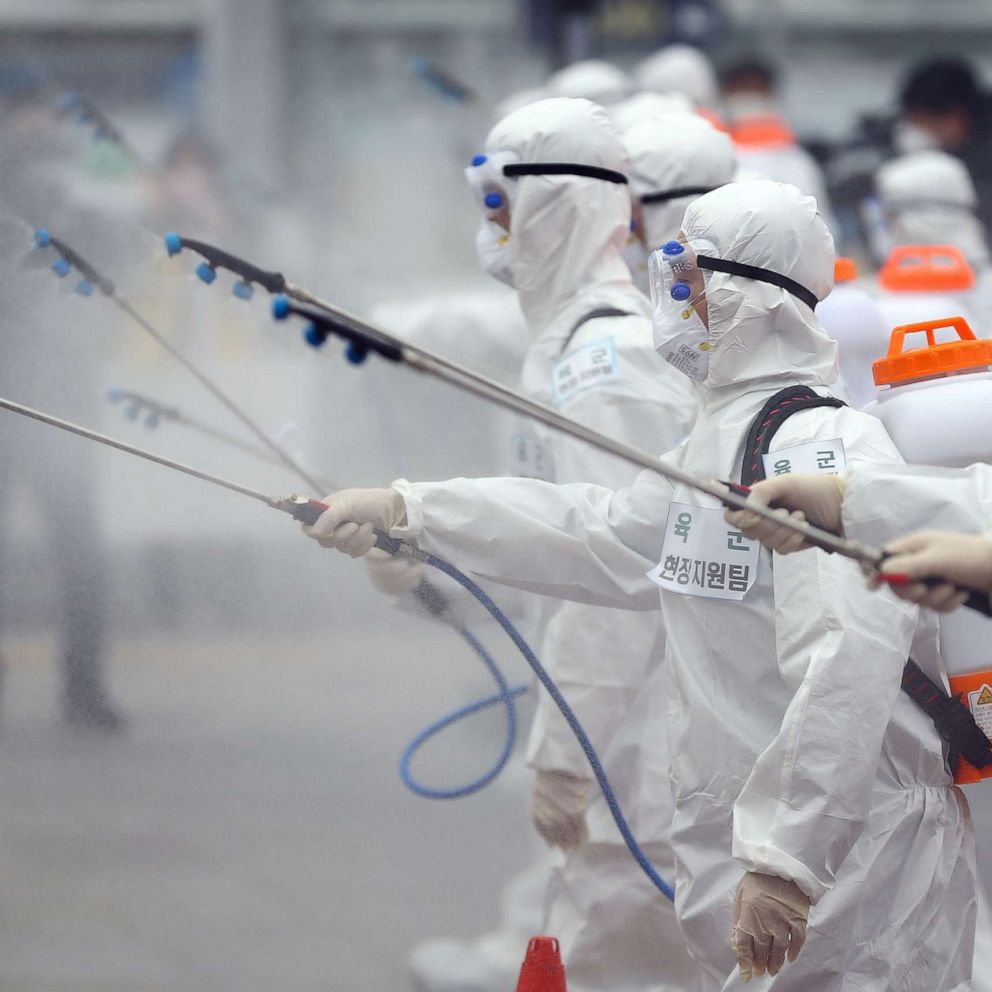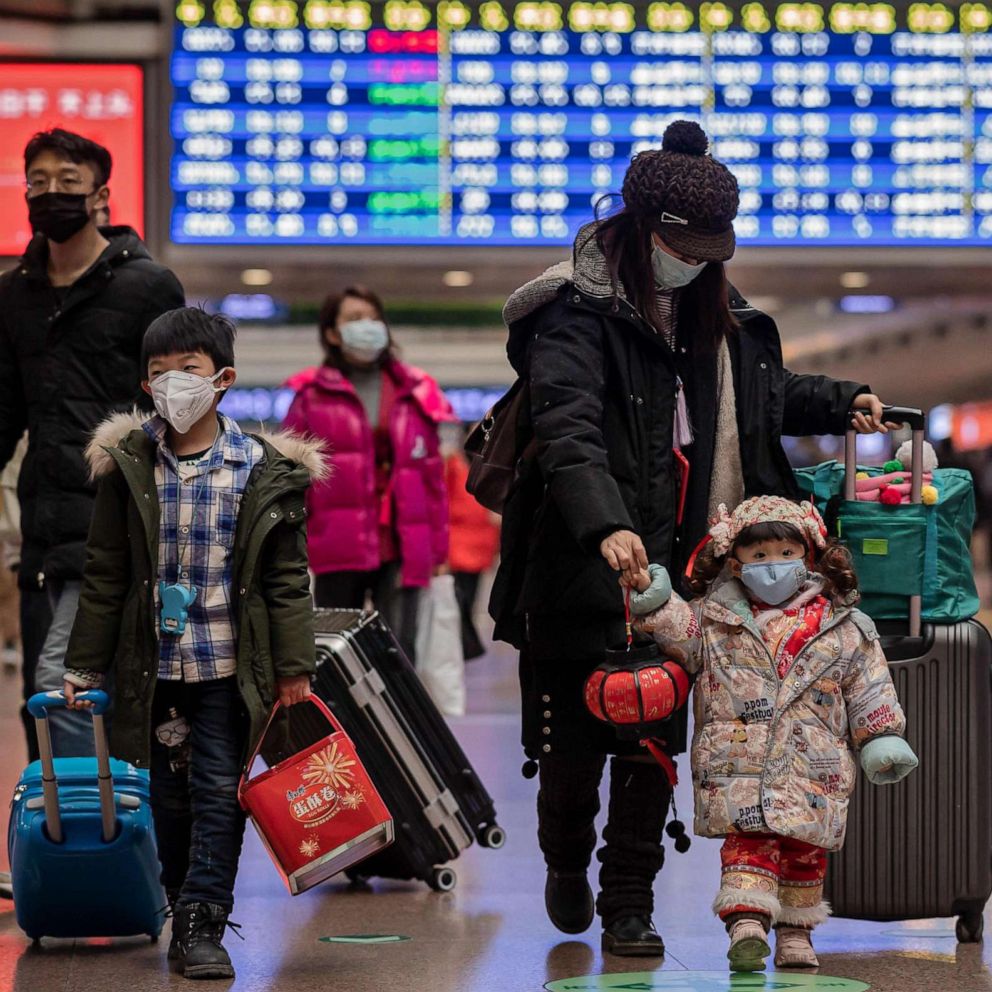Birx, like Trump, suggests China or WHO warned late about human-to-human transmission, says actions need to be examined 'once this is over'
Speaking on "The View," she agreed with Trump that lives could have been saved.
A day after President Donald Trump said he was putting a hold on U.S. funding for the World Health Organization amid the ongoing pandemic, White House coronavirus response coordinator Dr. Deborah Birx echoed the president, saying that "someone had to have known" that human transmission was happening, whether China or the WHO, and signaled many lives could have been saved it been known earlier.
"I think once this is over, we'll be able to look back and see, 'did China and the WHO say and do everything to alert the rest of the world to the nuances of this virus' -- because when it first explodes someone had to have known that there was human to human transmission," Birx told co-hosts of ABC's "The View" Wednesday.
"You really have to go back and ask yourself, why wasn't there this level of transparency when this virus exploded?" she added. "I think people would have prepared differently if they had known the level of transmissibility of this virus."
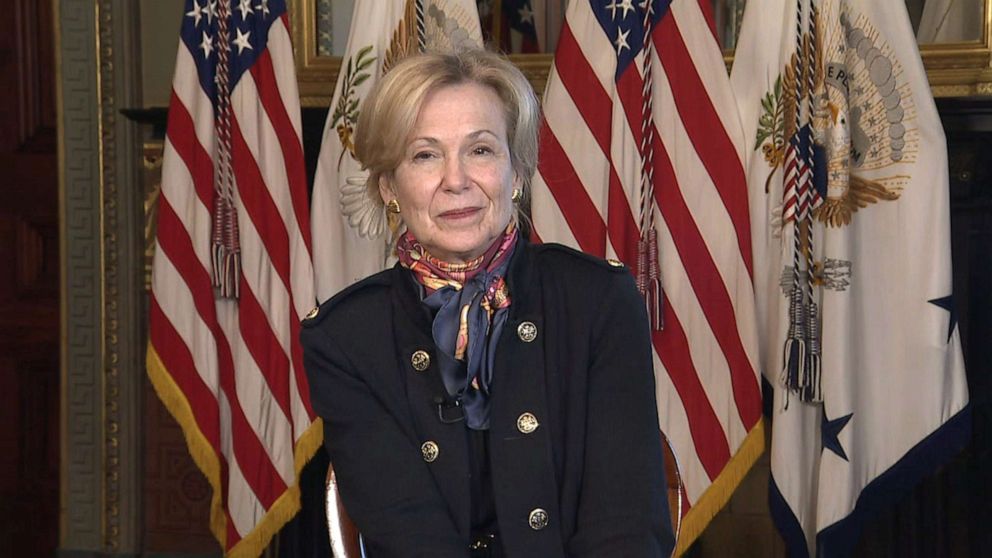
Tune into ABC at 1 p.m. ET and ABC News Live at 4 p.m. ET every weekday for special coverage of the novel coronavirus with the full ABC News team, including the latest news, context and analysis.
Even as the U.S. death toll from COVID-19 soared to more than 26,000 lives Wednesday morning, Birx said that the rate of new cases of COVID-19 is slowing and that some areas, with a data-driven approach, can start looking to decreasing social distancing restrictions.
"We do see hope and the actual number of new cases decreasing day over day, but, you know, the mortality will lag and we'll continue that through this week," Birx said.
"We really want to still ask every American to do what they've doing -- I've been so proud to watch American social distance and do what's needed to stop the spread of this virus," she added.
Asked when Americans might see a return to normalcy, Birx didn't give a date but said some places without could "do very well" with decreasing restrictions due to increased respiratory disease surveillance systems that have become available in the last month.
"You can see states where they have good surveillance up and running now, where they haven't really seen significant increases in cases, and so this has got to be done in a very laser focused data driven manner," Birx explained.
"But as the data has come in, I think we're very confident that we can actually see places that could do very well with some decreasing restrictions."
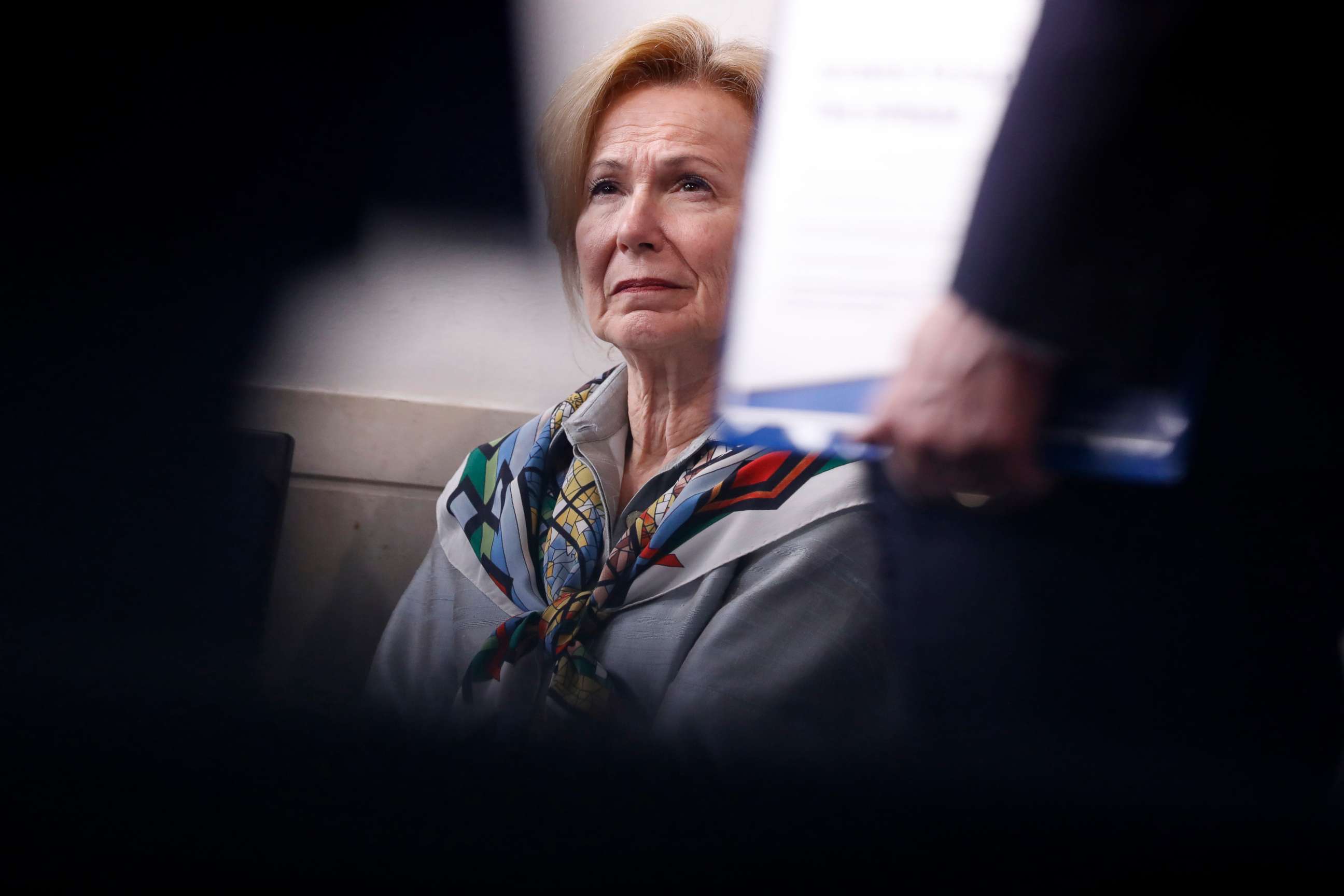
"I have confidence in our surveillance systems and matching that with our testing capacity. We can see states, if you go on the CDC site, that really have not had any respiratory or significant respiratory diseases, and therefore don't have COVID-19 circulating," she added.
Then asked if it frustrates her that not every government and public health official are not on same page in responding to the virus, Birx jokingly said, "I'm used to this."
"I'm used to this. I work, you know, all around the world and what's been really exciting to me, when you do global health work, is listening to the community and listening to officials and really understanding how people are looking at things differently," she said.
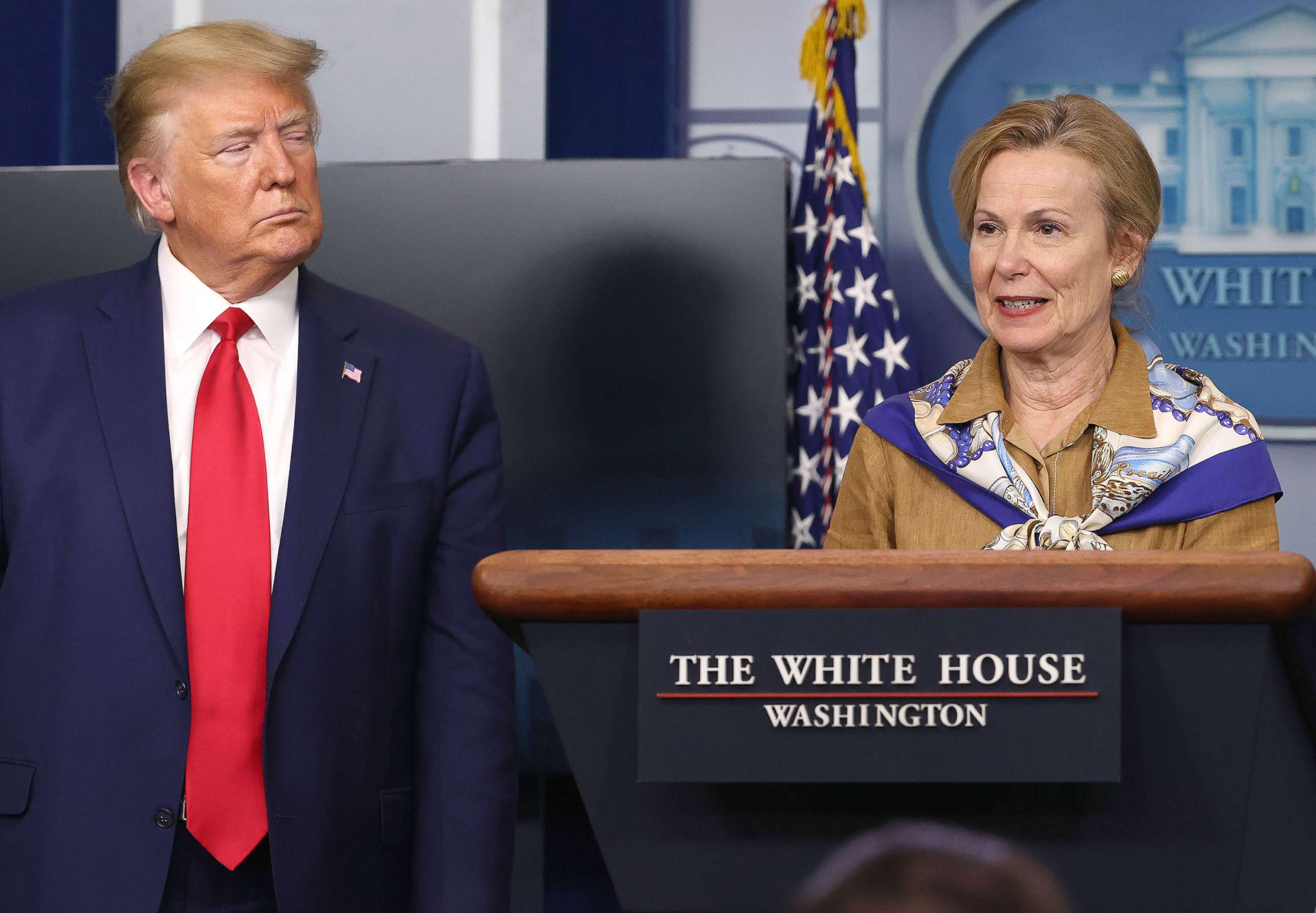
Before Birx was detailed to the White House coronavirus task force six and a half weeks ago, she led the government response in the fight against HIV/AIDS, as a global AIDS ambassador, a role held since 2014.
She has since become a prominent face in the government's response to COVID-19 since, and compares her approach this novel virus to her approach to HIV/AIDS: to chart all of the data and put it into context, citing trends so the government can identify when something might be working or falling short.
Birx also that with both COVID-19 and HIV/AIDs, because of asymptomatic transmission, "you have to do surveillance in a different way."
"I think the other complicating factor that worries me every day, because I see this in HIV, people passing the virus on to others because they're asymptomatic and they don't know they're infected," Birx said. "You can't just wait for people to be identified as a case with symptoms you have to have surveillance in place to really look for cases and asymptomatic cases."
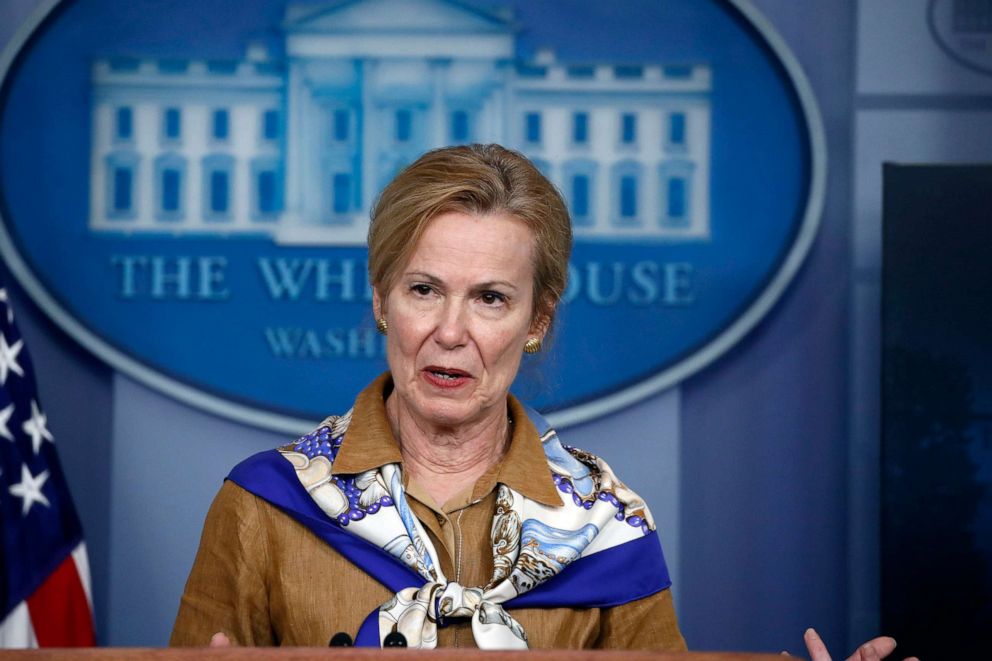
In the spirit of social distancing, Birx has isolated herself in Washington, D.C., avoiding her own family as she now meets daily with the president and vice president. She joined co-hosts of "The View" via video call.
Birx has spoken several times of avoiding both her elderly parents into their 90s, daughter, and younger granddaughters amid the pandemic, who live a house in Maryland that she shared them before the pandemic.
She said at a task force meeting last week that she couldn't seeing her flu-stricken grandchild, whom she would normally treat as the doctor of her family because, "You can't take that kind of risk with the leaders of the country."
The 63-year-old physician and immunologist graduated from high school at 16, got married and graduated from college at 20, finished medical school at 23 and joined the U.S Army in the same year, according to a profile in the Washington Post.
What to know about Coronavirus:
- How it started and how to protect yourself: Coronavirus explained
- What to do if you have symptoms: Coronavirus symptoms
- Tracking the spread in the US and Worldwide: Coronavirus map


